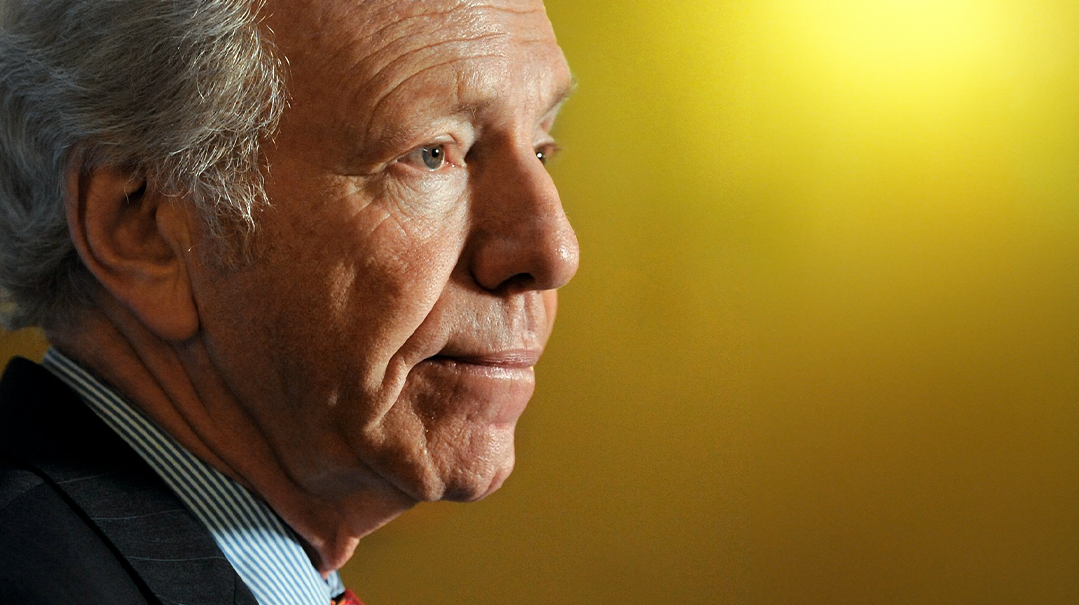Doomed to Fail?

Lieberman admits his goal is to penalize chareidi men who learn instead of working

Is Avigdor Lieberman’s newest endeavor at social engineering in the chareidi community doomed to failure?
In his first major decision as finance minister, Lieberman proposed slashing NIS 400 million in day care subsidies to many chareidi families unless both parents either work or are learning a profession or trade. Until Lieberman’s unilateral ukase, chareidi families qualified for the subsidies even if the father was learning in kollel.
Chareidi MKs blasted Lieberman’s decision as an “evil decree” that singles out kollel families with children ages three and younger. Even the far left reacted with scorn. Meretz chairman Nitzan Horowitz said children deserve to get what they need no matter what their parents do.
Cabinet ministers wield considerable power in Israel. The Finance Ministry writes the regulations for day care subsidies, so Lieberman can change the rules as he pleases, and on short notice. If the new regulation does come into effect on September 1, as Lieberman proposes, parents of some 18,000 young chareidi children will be forced to pay as much as NIS 1,000 more per child, each month, to keep them in day care.
Lieberman admits his goal is to penalize chareidi men who learn instead of working. He quotes the Rambam out of context on the importance of combining work with learning. Lieberman, with his long history of antagonism toward the chareidi community, isn’t one to start preaching. Chareidi MKs contend that Lieberman’s plan will backfire: instead of having the intended outcome of forcing men out of kollel into jobs, chareidi workforce participation could actually dip if working mothers quit their jobs because day care costs consume too much of their salaries.
Dr. Gilad Malach, director of the Ultra-Orthodox in Israel Program at the Israel Democracy Institute (IDI), suggests that chareidi families are resilient and will cope even if the cuts go through. Back in 2013, Dr. Malach was one of 33 prominent academics and journalists who signed a manifesto objecting to a Knesset law imposing criminal penalties for chareidi youth who decline to serve in the IDF.
Dr. Malach is also co-author of the 2016 Master Plan for Ultra-Orthodox Employment in Israel. In it, he wrote that the percentage of chareidi men who work rose from 36 percent in 2003 to 50 percent in 2015 as a direct consequence of cuts in government support and the establishment of employment centers and educational programs geared to chareidim.
Although Dr. Malach said he supports Finance Ministry efforts to boost chareidi workforce participation, he pointed out some major flaws in the Lieberman proposal in a conference call with the foreign press in Jerusalem late last week.
For starters, he noted that competition for admission to day care centers is fierce. If 15 families apply for ten open slots, priority goes to parents with the lowest incomes. So, ironically, if the Lieberman plan forces both parents to work, and they earn too much, their kids will no longer qualify.
“This situation is absurd, because it gives a negative incentive to integrate into the labor market,” Dr. Malach said. “And even if someone, as a result of this decision, decides not to continue his kollel studies and joins the labor market, most chareidi men can’t do it right away because they don’t have the tools or the training.”
Lieberman’s urgency to implement his plan immediately creates a catch-22. Under current government regulations, chareidi men who never enlisted in the IDF or national service (sheirut leumi) are prohibited by law from working until they reach age 24, when they become eligible for a lifetime exemption from IDF service. Many of the young kollel fathers Lieberman would like to send packing with their lunch pails aren’t even allowed to work.
To remedy this, Lieberman wants to lower the IDF exemption age to 21, but such a change requires approval by the full government. The IDF is resisting, saying this will harm their recruiting efforts. They find that many chareidim first decide to enlist between ages 21 and 24. They fear that given a choice between the army and work, young chareidim will choose work.
So with all of these impediments, why is Lieberman pushing this agenda now?
“He has limited tools by which he can pressure chareidi society to participate in the labor market,” Dr. Malach says. “In this coalition, there are two right-wing parties, Yamina and Gideon Saar [New Hope]. Both of these parties would like to keep an option open for chareidi parties to join the coalition one day.”
One way for Lieberman to climb down from his tree, if he cares to, is to seek a compromise that would postpone implementation for a few months and then phase it in slowly. Chareidi MKs say they will fight the proposal as it currently exists by using the clout that comes from their two seats on the Knesset Finance Committee to bottle up other legislation. The government faces a late October deadline to pass a national budget or call new elections. Lacking a real majority, the government may find it needs chareidi votes to stay in power.
However, if the government survives, and if Lieberman gets his way, Dr. Malach suggested that the government should apply some of the NIS 400 million it will save on day care subsidies to assist chareidi families during the transition period.
“One of the solutions would be to give a stipend to chareidi men who join vocational training,” he said. “While they are studying, they will continue to get support from the state.”
There was controversy in the mainstream Israeli media last week over whether Prime Minister Bennett is all in on this plan, or whether Lieberman went rogue and pushed this through totally on his initiative.
The next couple of months will tell if the Bennett-Lapid-Lieberman government is truly interested in the economic well-being of all Israeli citizens, including chareidi families — or if they sorely underestimate the value of Torah studies and the vital role that plays in the economic strength and defense of the nation.
(Originally featured in Mishpacha, Issue 869)
Oops! We could not locate your form.












